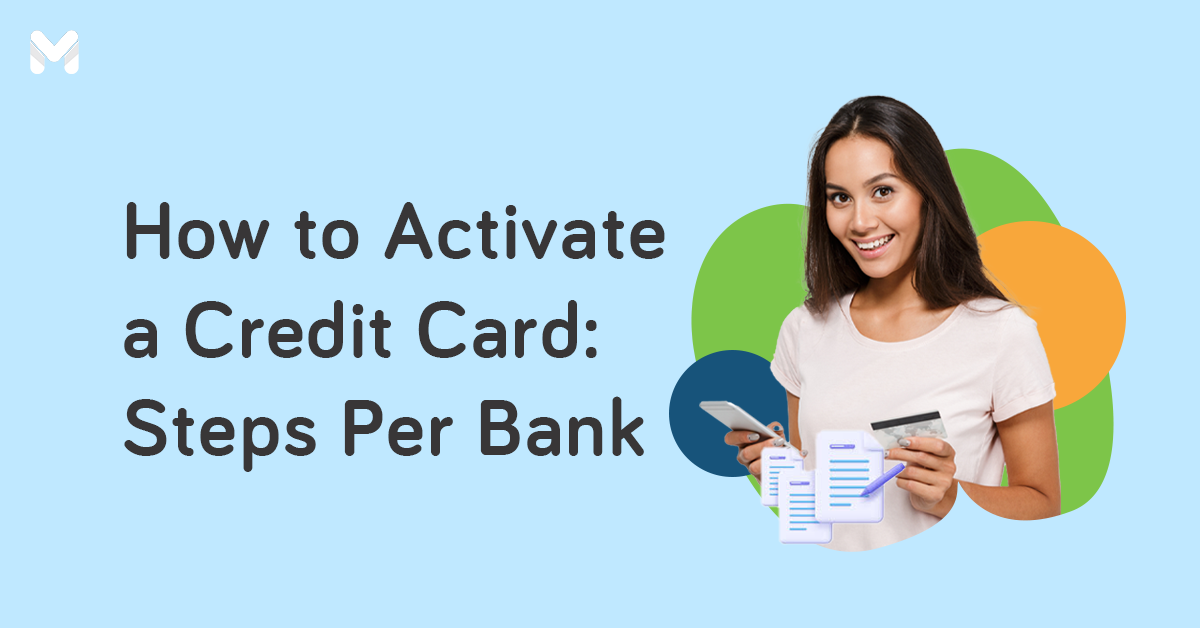It’s that dreaded time of the month—your credit card bill arrives, and you aren’t sure if you can pay off your total balance. You have other priorities on your budget, so not paying your credit card in full becomes an irresistible option. After all, it won’t hurt as much as losing electricity if you don’t pay your utility bills.
Or is it? Yes, it’s easier to forgo your credit card bill for a month. You can still use your card anyway.
But the consequences are more serious than you might imagine. Here are five possible consequences of missing a credit card payment.
What Happens If You Don't Pay Your Credit Card Bill?
Here are some repercussions you might face if you don't pay your credit card bill:
👉 It’s a One-Way Ticket to Debt
-Sep-08-2023-04-03-12-6390-AM.png?width=674&height=449&name=Pics%20for%20blog%20-%20600x400%20(5)-Sep-08-2023-04-03-12-6390-AM.png)
Think one missed credit card payment won’t make a dent in your budget? Think again.
When you start skipping a payment, your unpaid credit card bill will be carried over to the next billing cycle. But that’s not all. You’ll be paying a finance charge,[1] which is the interest (with rates ranging from 2.5% to 3%) applied to your total amount due, which includes your remaining balance plus the outstanding balance.
This compounding monthly interest will make it harder for you to fully pay your credit card bills on time. Thus, it’s easy to rack up debt with just one missed credit card payment.
Aside from the finance charge, the bank will also charge you a late payment fee. Even if you just forgot to pay your credit card bill, you will still be charged as much as ₱1,000 for each month that you pay past your due date.
Because late payment fees add up to your balance, they also accumulate interest. Thus, if you start missing a credit card payment, you’ll notice your bills piling up quickly.
To avoid late payment fees, know when your credit card payment will be posted to your account. Some payments are posted to the account only two to five days from the actual payment date. Check with your credit card provider just to be sure.
Read more:
- How Much are the Credit Card Interest Rates in the Philippines?
- 12 Credit Card Fees in the Philippines to Watch Out For
👉 You’ll Lose Your Credit Card Perks
Banks require a good credit standing—which means making full and timely payments each month—so cardholders can continue to enjoy their credit card benefits.
Skip one credit card payment even for just one day, and you might end up saying goodbye to your points, air miles, and other rewards you’ve earned. You also won’t qualify for credit card promos.
Even if the bank still gives you rewards despite your unpaid balances, it won’t be worth it because the interest you’re paying is much higher than the rewards you’re getting.
👉 Your Card May Be Cancelled
You can easily lose your card privileges if you keep missing your payments.
In fact, the Bangko Sentral ng Pilipinas allows banks in the Philippines to suspend or terminate a cardholder’s right to use a credit card[2] in case of delinquency. Your bank can do so automatically if you fail to pay your balance 90 days from your original billing statement.
Read more: Ask Moneymax: What is Credit Card Delinquency and How to Avoid It?
👉 You’ll Ruin Your Credit History
Unpaid credit card balances hurt your credit history. Once you go beyond 90 days past your due date, you’ll have a permanent negative credit record—information that all future lenders or banks can access.
That won't cut it if you're planning to apply for a loan or another credit card in the future. Potential lenders will know your history through credit reports from the Credit Information Corporation (CIC) and other credit bureaus in the Philippines. If they find out about your unpaid credit card debt, you’ll be considered a credit risk, making it difficult for you to get approved for a loan or a new credit card.
👉 It Will Lead to Financial Stress
Dealing with one missed credit card payment is enough to stress you out[3]—what more if you skip it for months? You’ll constantly worry about adjusting your expenses and setting aside money for your debt repayment.
Worse, it may lead to sleepless nights and ruined relationships, in case you try to borrow money from a friend or colleague to pay off your credit card bills.
Read more: 6 Strategies to Manage and Quickly Pay Off Your Credit Card Debt
Paying Your Credit Card in Full: Why You Should Do It
-Sep-08-2023-04-05-30-9923-AM.png?width=674&height=449&name=Pics%20for%20blog%20-%20600x400%20(7)-Sep-08-2023-04-05-30-9923-AM.png)
"Can I pay only the minimum amount due? What if I pay only the minimum amount on my credit card?" you might ask.
Some cardholders pay only the minimum balance because it's easier on the budget. Banks in the Philippines require a monthly credit card payment of at least a small percentage, typically around 5%, of the total amount due.
In theory, paying only the minimum balance on your credit card bill is better than skipping a payment and incurring a late payment fee. But not paying your credit card balance in full will cost you more over time.
Here are the advantages you'll enjoy if you always pay your credit card in full:
✔️ You'll Avoid Interest on Your Credit Card Bill
What happens if you don't pay your credit card in full? When you pay just the minimum balance on your bill, you leave a balance that's carried over to the next credit card billing cycle.
You're probably wondering, "If I pay the minimum credit card payment, do I get charged interest?" Yes, the bank will still charge you interest on the overdue amount plus the outstanding balance.
Even if you're paying the minimum amount, your credit card balance still increases from month to month. This can make it harder for you to pay off your total balance. You'll end up paying for your credit card bill monthly without cutting your balance down to zero.
Always make your full credit card payment by the due date and you'll never have to pay any interest. A zero finance charge on each credit card billing statement doesn't just look good on paper—it also means no debt to deal with.
✔️ You'll Improve Your Credit Score
Two important factors that affect your credit score are your payment history and credit utilization ratio,[4] the percentage of the credit you're using.
The credit payment history includes not just how timely your payments are but also how much you pay. To get a good credit score, build a strong payment history by paying your monthly credit card bill in full.
Another way to boost your credit score is to avoid carrying a high balance on your credit card. Keep it well below your credit limit to reduce your credit utilization ratio and increase your credit score. Consistently pay off your credit card bill to maintain a zero balance on your account.
✔️ You'll be More Financially Disciplined
If you prioritize paying your credit card in full, you're committing to set aside a portion of your monthly budget for it. You're aiming to keep your balance low, making it easier for you to pay your bill in full every month.
As a result, you'll be more frugal with your credit card spending and keep your balance within your target limit. This trains you to be more responsible in using your credit card.
What If I Really Can't Pay My Credit Card Bill?
-Sep-08-2023-04-04-20-0709-AM.png?width=674&height=449&name=Pics%20for%20blog%20-%20600x400%20(6)-Sep-08-2023-04-04-20-0709-AM.png)
Sometimes, certain financial emergencies can leave you incapable of paying your credit card bill. Does that mean it's over for you and your card? Not quite.
Here are some ways you can deal with your unpaid credit card balance:
💳 Pay the Minimum Amount Due
The band-aid fix is to pay the minimum amount due. But as mentioned, you’ll end up paying more than what you need to if you pay only the minimum balance. Ideally, go beyond the minimum—shave off at least a third of your remaining balance to minimize the damage.
While it guarantees you another month of credit card use, it's best to not make this a habit to avoid incurring interest on your remaining unpaid balance. It's still better to pay your credit card balance in full.
💳 Apply for a Balance Transfer
Another option is to apply for a balance transfer. This will consolidate your debt to a new credit card with lower interest rates. Your new issuer will agree to pay the debt from the original lender, and in turn, you’ll pay it back at a lower interest rate. This might allow for more breathing room.
Terms for balance transfers can range from three to 60 months with interest rates ranging from 0% to 2%. Bear in mind that you’ll need to have a good standing with your new credit card provider in order for them to agree to these terms.
Here are some balance transfer credit cards to consider:
| Credit Card | Balance Transfer Features |
|
UnionBank Platinum Mastercard
|
|
|
Metrobank Titanium Mastercard®
|
|
|
HSBC Red Mastercard
|
|
|
Security Bank Gold Mastercard
|
|
|
BPI Edge Card
|
|
🎁 Get approved and rewarded a gift of your choice worth up to ₱3,499
Eligible cards: Metrobank Titanium Mastercard®, Platinum Mastercard®, and World Mastercard®
Promo period: Until June 30, 2025
Get rewarded when you apply and get approved for your preferred card via Moneymax. Choose between eGift worth ₱2,000, Oral B Vitality 100 worth ₱2,095, or the Mi Smart Air Fryer 3.5L worth ₱3,499 🎁
Per DTI Fair Trade Permit No. FTEB-226753. Series of 2025. Terms and conditions apply.
Note: Applicant must be an existing credit cardholder in good standing for at least six months.
💳 Look Into Restructuring Programs
A last-ditch option is to have your account restructured and provide the bank with evidence that you can pay back your debt after a while. Have the courage to negotiate with your credit card provider for flexible payment terms. Banks are willing to help their clients restructure repayment terms to avoid default listing.
Read More: Take Back Control: Credit Card Amnesty Program in the Philippines
Final Thoughts
It takes a lot of commitment and willpower to make a full credit card bill payment every month. It may sound difficult, but consider the benefits you'll gain from it. With a great credit card comes great responsibility—to pay back exactly what you owe.
But sometimes, financial emergencies can keep you from paying your credit card balance in full. In that case, try to pay as much as you can to keep your balance low. And once you've recovered, get back to consistently paying your credit card in full.
Sources:
- [1] What Is a Finance Charge? (Investopedia, 2022)
- [2] BSP Circular No. 1003
- [3] A Study on Consumer Debt Stress Caused by Credit Cards (Arabian Journal of Business and Management Review, 2020)
- [4] What is Credit Utilization Ratio? (Investopedia, 2023)







-3.png?width=734&height=214&name=image%20(6)-3.png)





![[UPDATE]_MB_CC_Choose_Your_Welcome_Gift_(June_2025)__1200x350](https://www.moneymax.ph/hs-fs/hubfs/%5BUPDATE%5D_MB_CC_Choose_Your_Welcome_Gift_(June_2025)__1200x350.png?width=438&height=128&name=%5BUPDATE%5D_MB_CC_Choose_Your_Welcome_Gift_(June_2025)__1200x350.png)
-2.png?width=734&height=214&name=image%20(8)-2.png)


